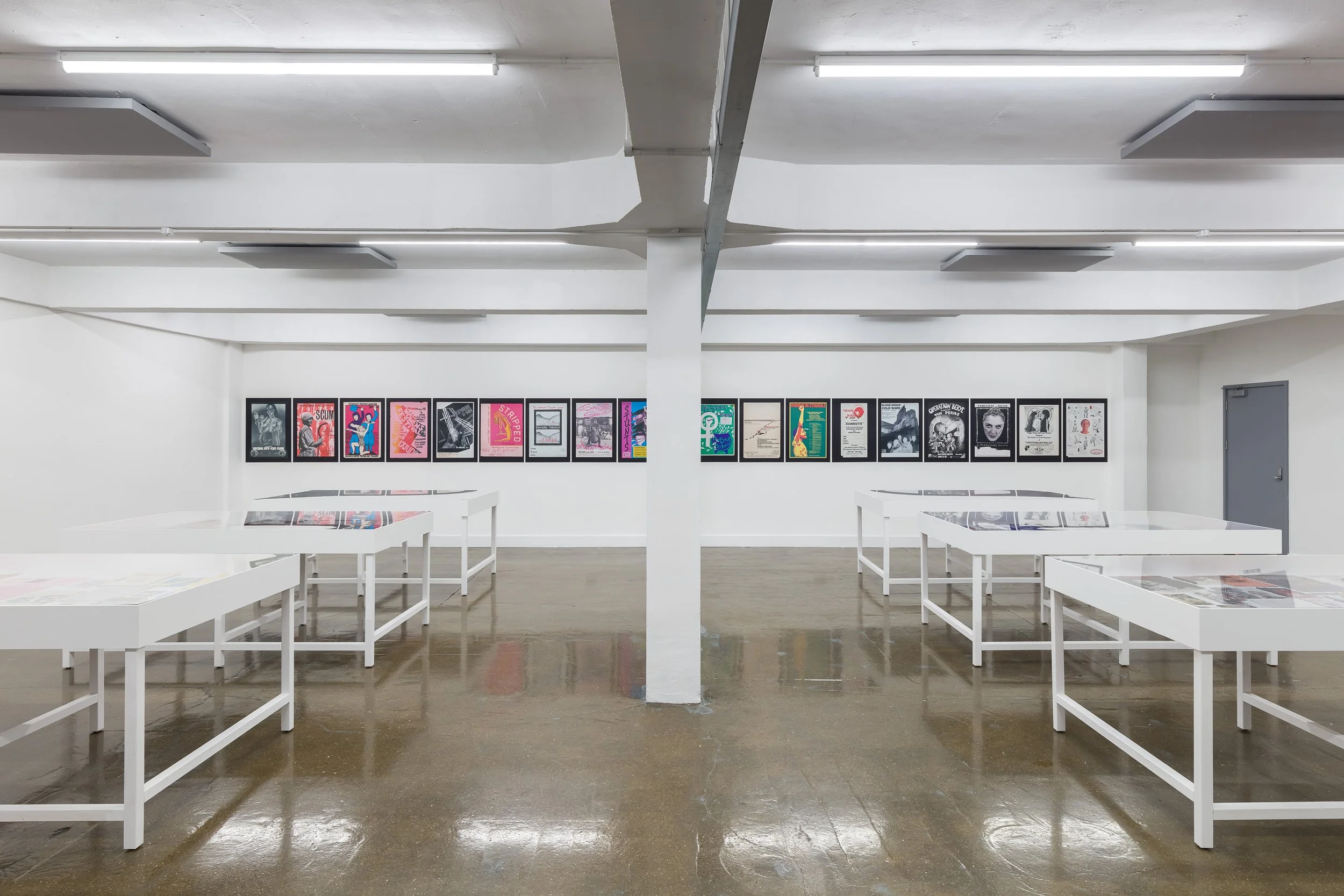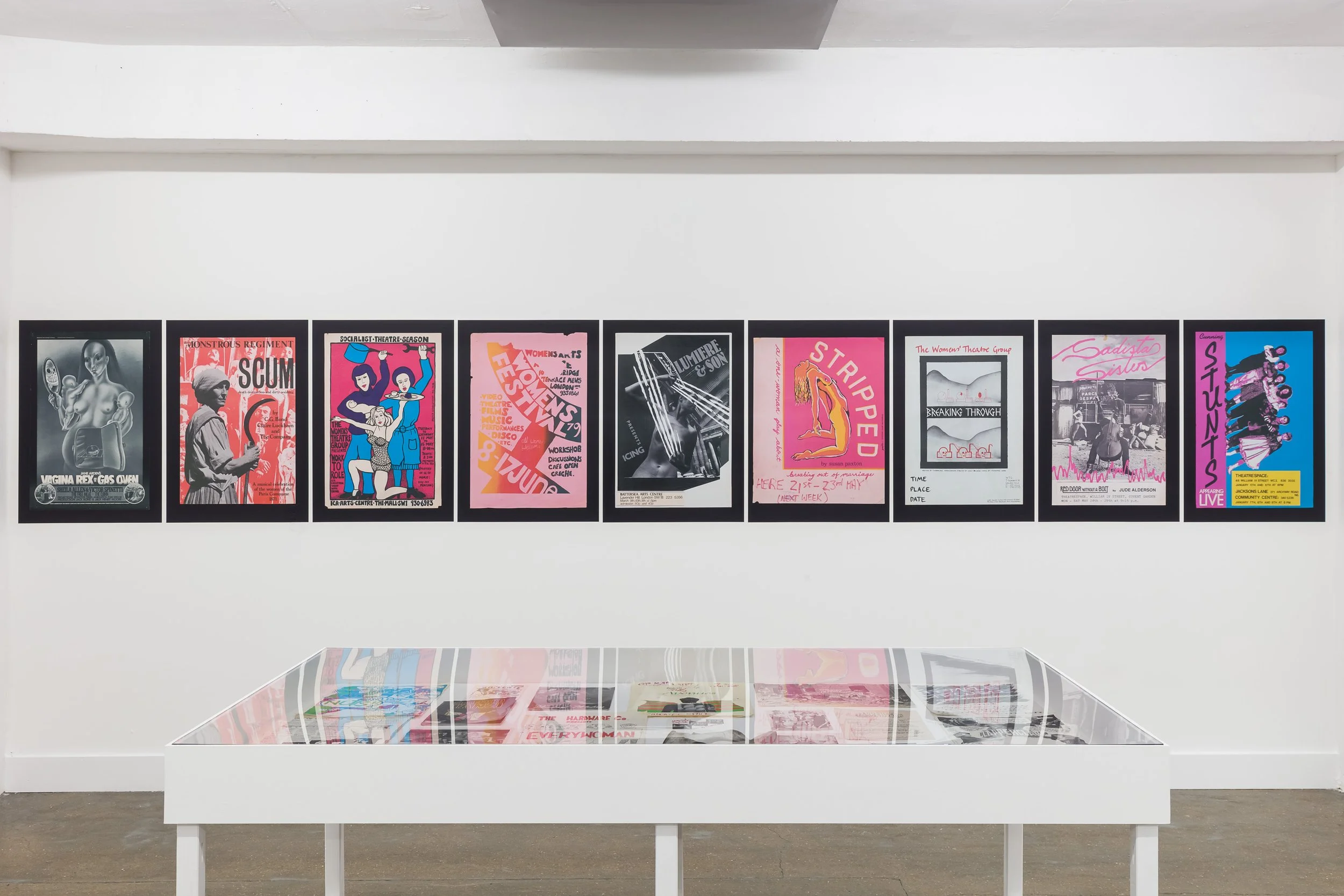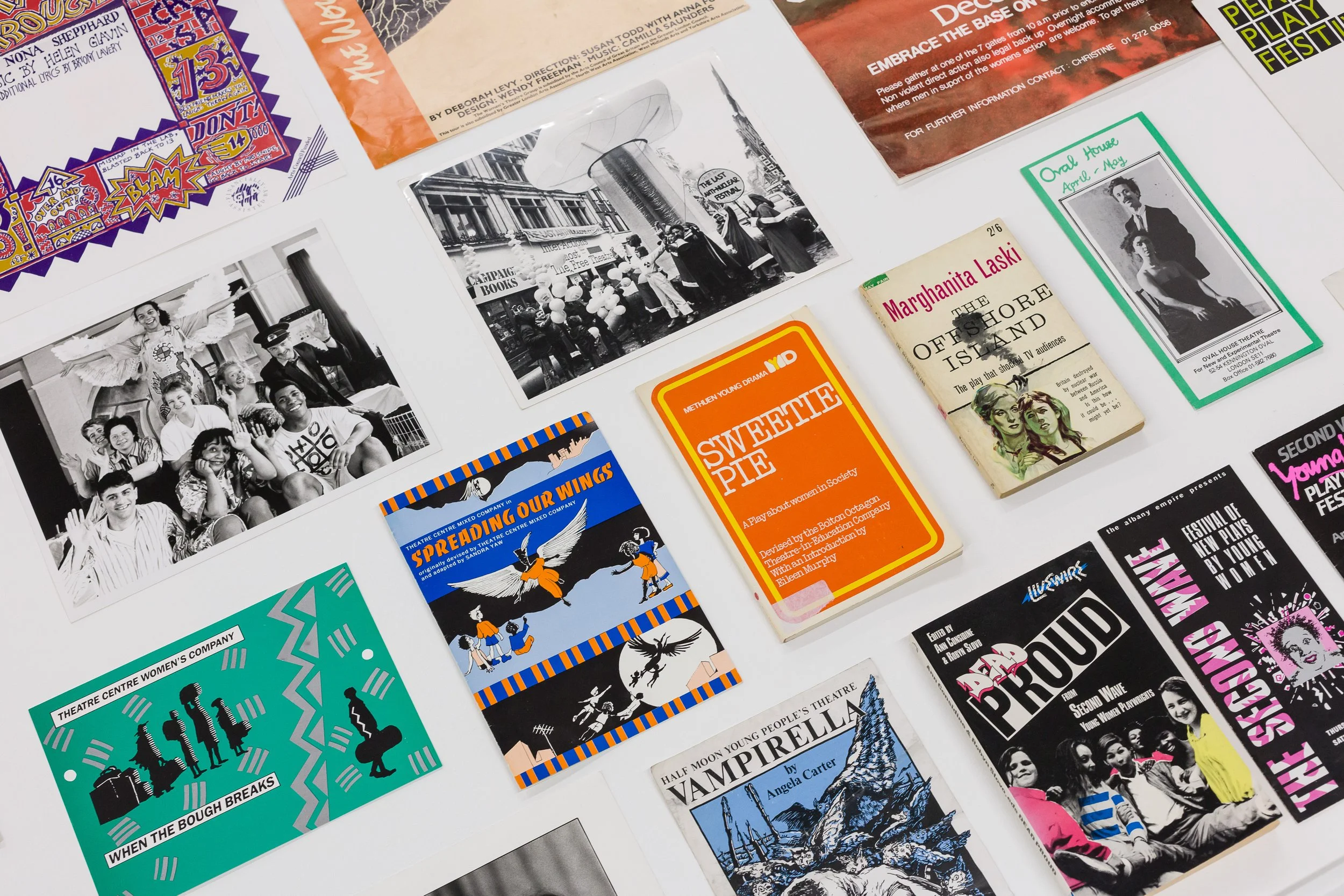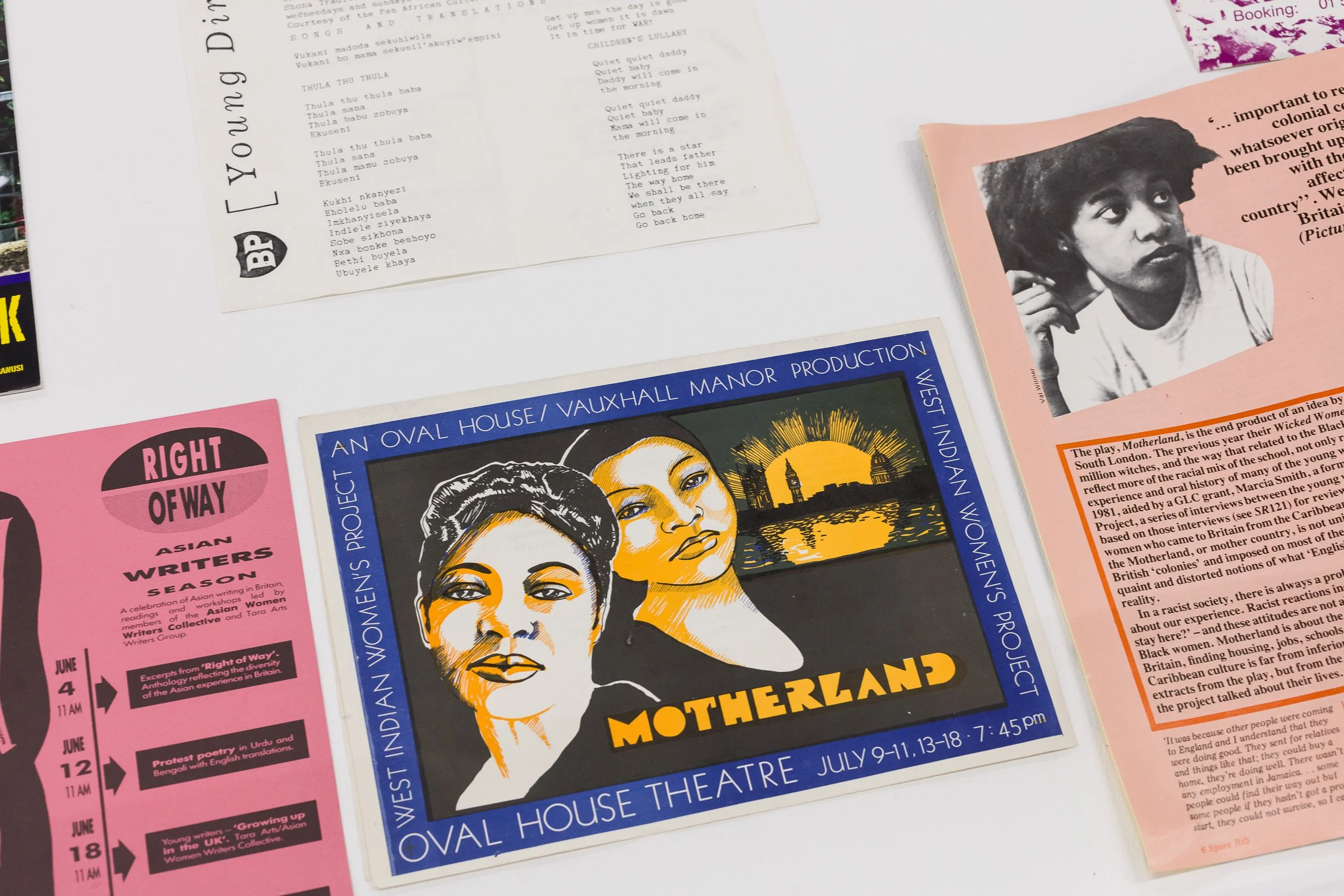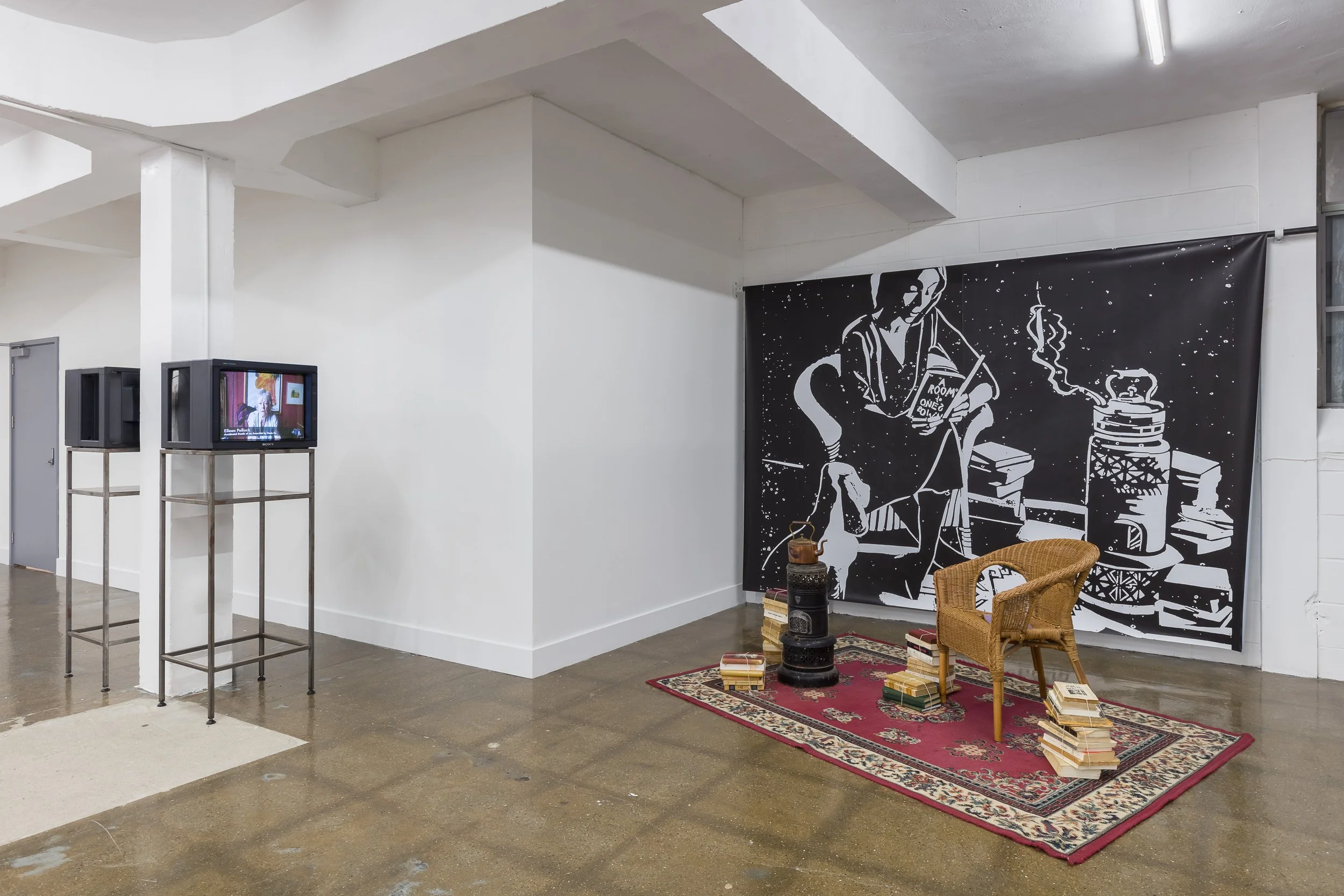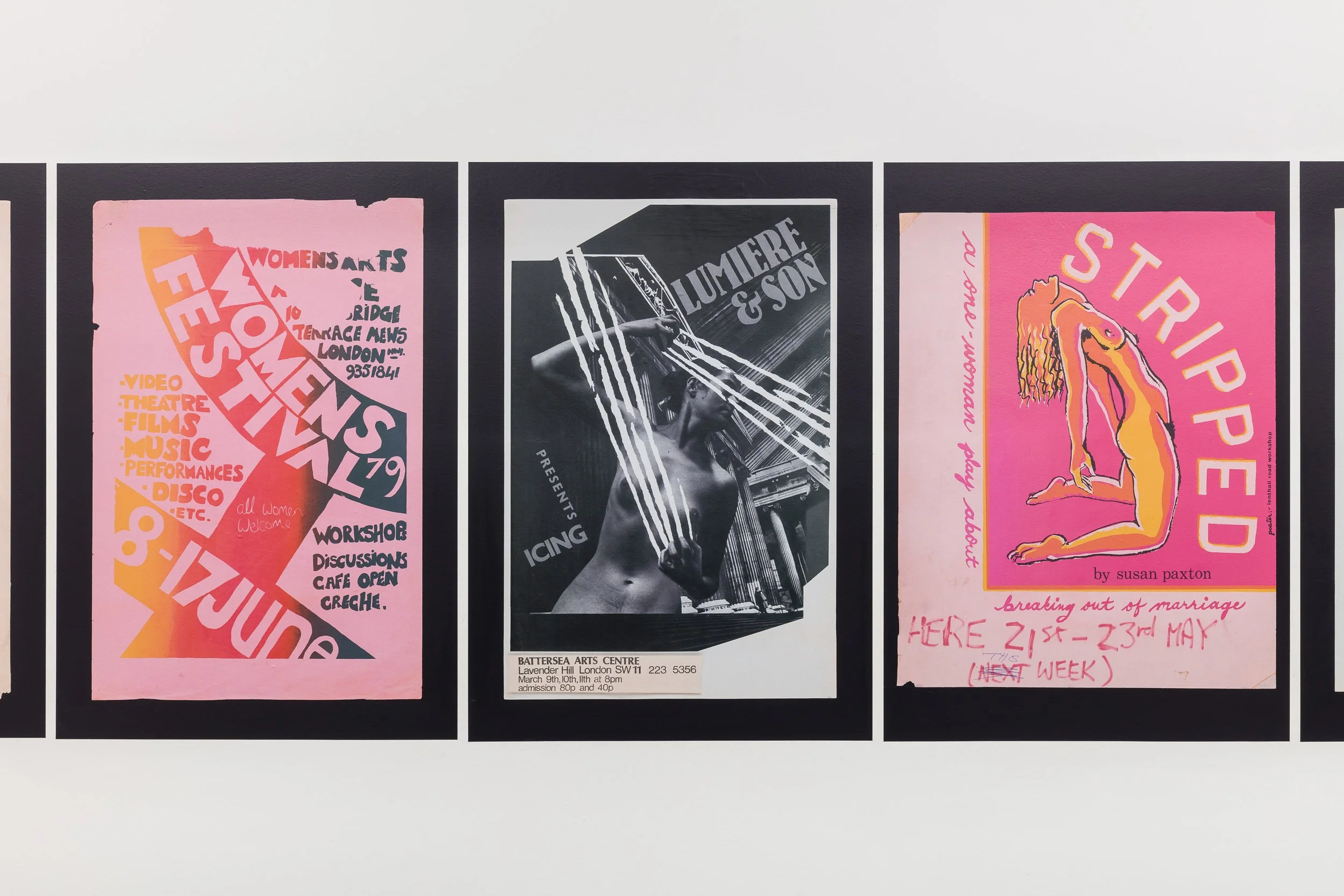RADICAL REDISCOVERY : FEMINIST THEATRE IN BRITAIN 1969-1992
This project marked 50 years since the UK’s first Women’s Theatre Festival at Inter-Action’s Almost Free Theatre in 1973.
The Project included an Exhibition, a new Collection of unpublished theatre work from the time, a Symposium, Playreadings and a Walks Programme.
THE EXHIBITION
Curated by Susan Croft at London Performance Studios (LPS) 8th November to 15th December 2024.
Curated by Susan Croft at London Performance Studios (LPS) 8th November to 15th December 2024.
This archival exhibition celebrated fifty years of alternative theatre made by women in the UK. The exhibition shared materials from the Unfinished Histories archive, and was curated by its co-founder Dr. Susan Croft.
The 1960s–1990s in Britain saw an explosion in alternative theatre made by women. Radical Rediscovery is an ambitious new survey that sets out to grapple with the nuanced and far-reaching social and political contexts behind this significant period of feminist theatre and practice.
Radical Rediscovery began with a series of vitrines displaying original ephemera, posters, documentation, and script excerpts from pioneering women that defined this period, including; Jane Arden (1960s), Women’s Theatre Group (Sphinx Theatre), Hesitate and Demonstrate, Sadista Sisters, Beryl and The Perils, Sensible Footwear, and Theatre of Black Women (1980s). This was underscored throughout by the stalwart community theatre groups and activist networks that made this work possible, including Women in Entertainment, Women Live, and the Women’s Playhouse Trust.
The exhibition continued with two monitors sharing oral and visual excerpts of interviews from seminal women practitioners from the Unfinished Histories archive, including Sheila Allen, an original performer from Vagina Rex and The Gas Oven (1969) and now-psychotherapist Natasha Morgan, whose play Room (1981) featured in the exhibition in the form of an installation.
It crucially highlighted the complexity of performance devised by women during this period, foregrounding feminist theatre from then to now as a vital social barometer and vehicle for political and personal expression, particularly in times of social, cultural, and political instability.
If you would like to read the individual captions for the exhibition items you can do so here and read the glowing reviews here.
Watch a tour of the exhibition above.
COLLECTION
RADICAL REDISCOVERIES, 1969-1987, PERFORMANCE TEXTS FROM THE WOMEN’S THEATRE MOVEMENT, ed by Dr Susan Croft
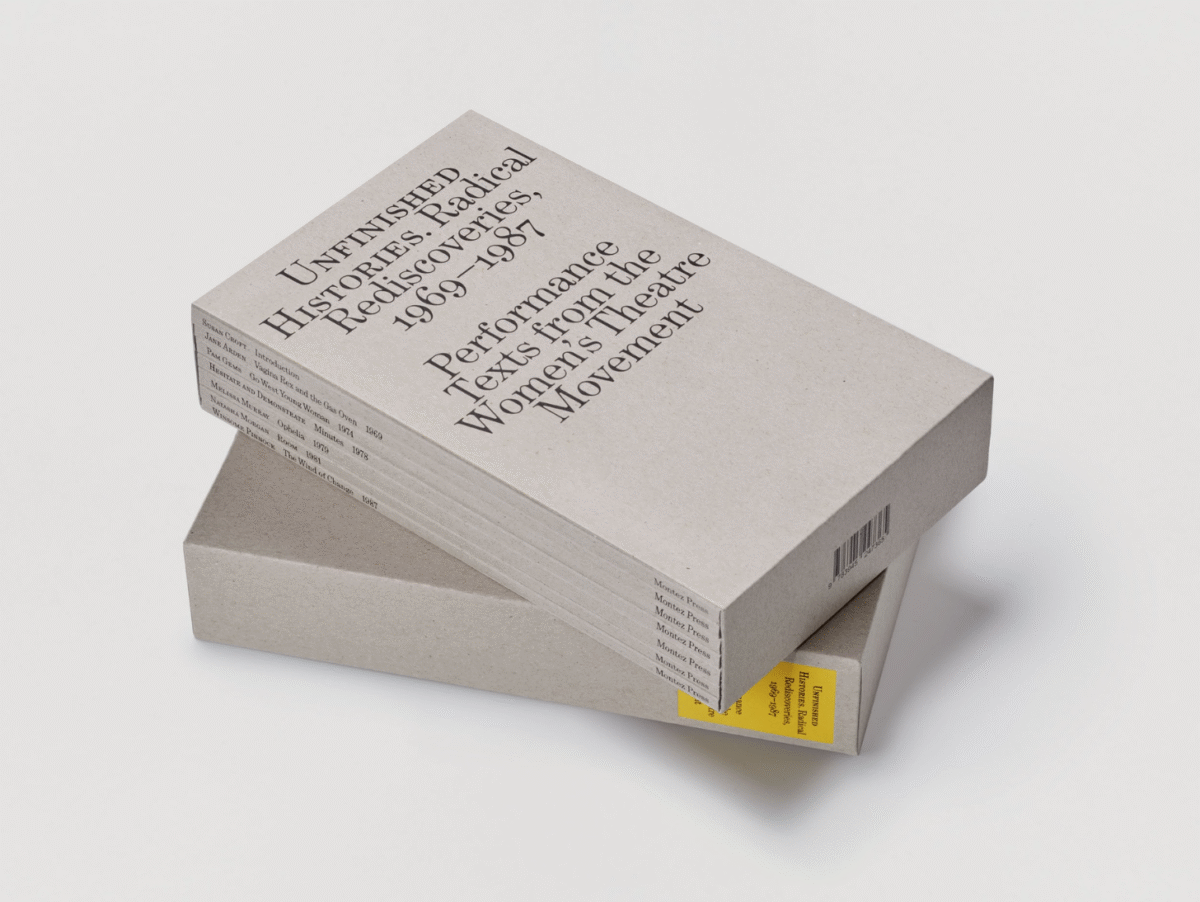
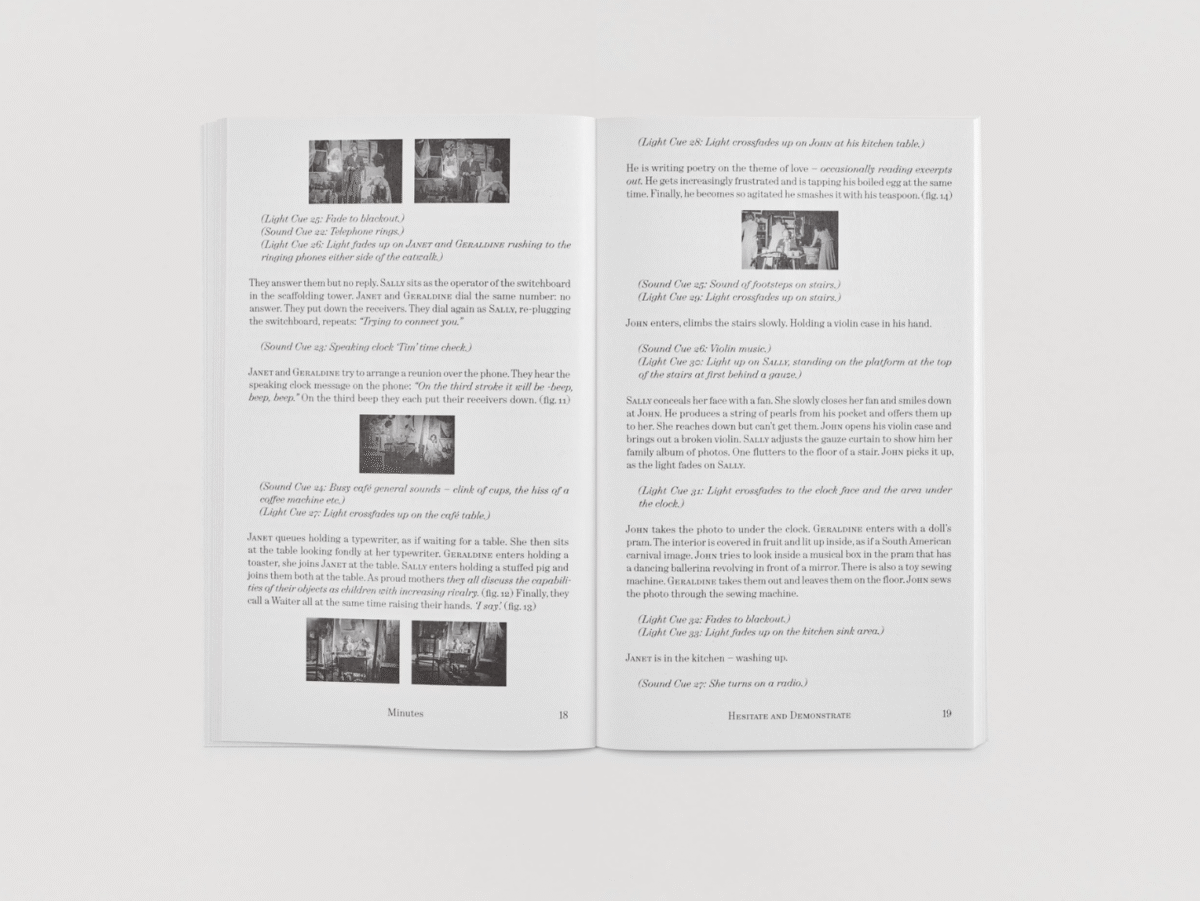
Published by Montez Press in March 2025, this is the second publication in the Scores imprint, which publishes plays, scripts and performance texts co-commissioned by Montez Press and London Performance Studios.
The collection brings together six plays/experimental performance texts and scores by women, the majority never before published, with an extensive introduction by Susan Croft:
Vagina Rex and the Gas Oven (1969) by Jane Arden
Go West, Young Woman! (1974) by Pam Gems
Minutes (1978) by Hesitate and Demonstrate
Ophelia (1979) by Melissa Murray
Room (1981) by Natasha Morgan
The Wind of Change (1987) by Winsome Pinnock
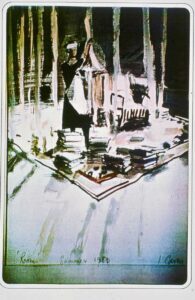
Jenny Carey’s design for That’s Not It’s Room (1981)
THE SYMPOSIUM
Feminist Theatre: Documenting The Past, Inspiring The Future
Saturday November 30th 2024.
A symposium of talks, panel discussions and a long table that closed proceedings, the event brought together theatre makers, artists, thinkers, and archivists to explore the women’s and feminist theatre movement, from the 1960s through to the 1990s and into the present day. Participants included Professor Anna Furse; Paula Brown, producer of Women Live and Katrina Duncan of Women In Entertainment in the 80s; writer and performer Rose Collis; experimental theatre-maker Natasha Morgan, site-specific theatre artist Geraldine Pilgrim, Jill Drower, author of The Exploding Galaxy: Performance Art, LSD and Bent Coppers in the Sixties Counterculture, actress and co-founder of Blacktress Cherelle Skeete, Sudha Bhuchar, co-founder of Tamasha Theatre company, director and academic Olusola Oyeleye, and playwright and performer Léa des Garets. Discussions aimed to connect the exhibition content with contemporary practitioners engaging with similar questions today, asking what has been learnt, lost and gained during this time. The symposium consisted of panel talks exploring the Unfinished Histories archive, legacies of women’s and feminist practices in British alternative theatre, and key concerns around documenting and archiving fringe theatre. This was followed by a long table discussion, and culminated with a drinks reception.
PLAYREADINGS
In April and May we hosted our first community workshops exploring some of the plays from the period at London Performance Studios. These led, in June and July, to four workshops and two staged readings of plays by women that emerged out of the women’s theatre movement in the 1960s, 70s and 80s.
Vagina Rex and the Gas Oven by Jane Arden (1969) workshop and reading, directed by Kirsty Housley
Go West, Young Woman by Pam Gems (1974), directed by Kirsty Housley, workshop
The Wind of Change by Winsome Pinnock (1987), directed by Kaleya Baxe
Ophelia by Melissa Murray (1979), directed by Kaleya Baxe
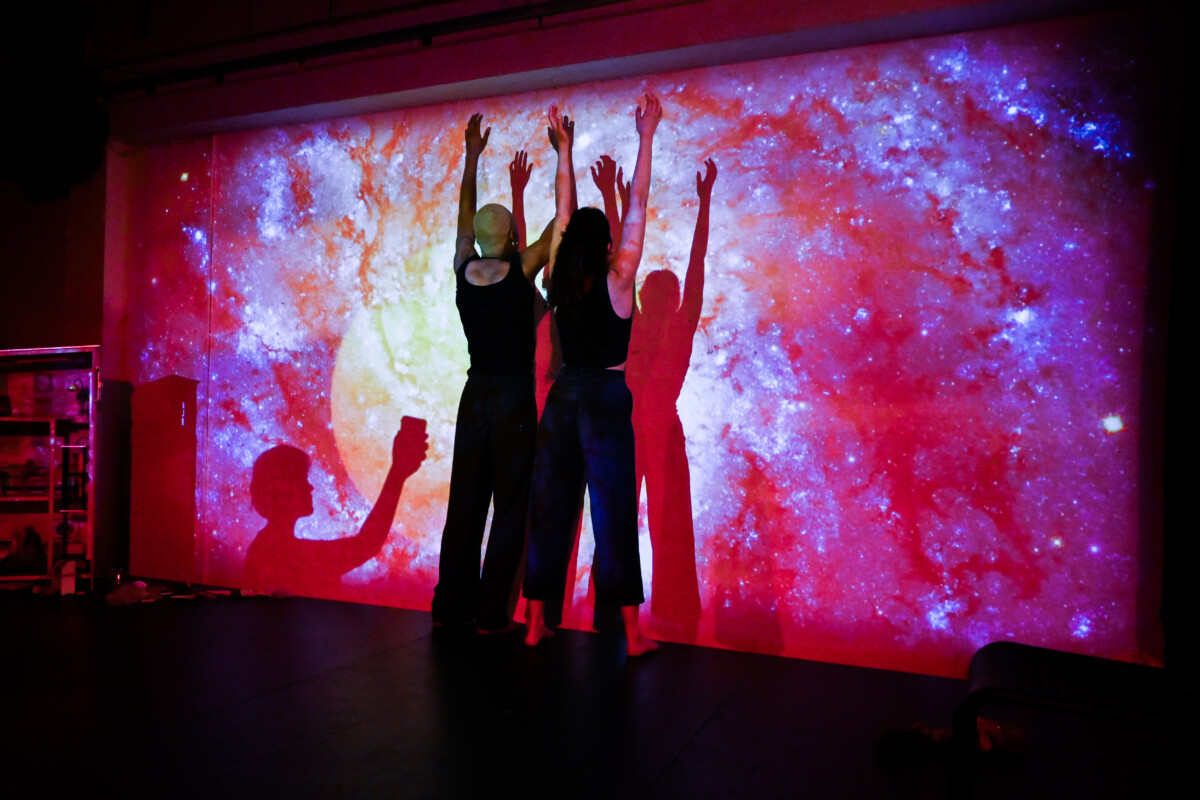

WALKS
Susan Croft led ‘Women in the (Alternative) West End‘ -walks through Soho in the west end of London exploring and celebrating some of the locations and women that transformed theatre in the 1960s, 70s and 80s. The route included the original site of Inter-Action’s Almost Free Theatre on Rupert St, the location of the first Women’s Theatre Festival in Britain that took place 50 years ago in Autumn 1973.
Over the course of two walks, participants visited a range of key venues and spaces that were part of the history of the alternative theatre movement in the 1960s, 70s and 80s in terms of their connection to women and the emergence of feminist theatre (with nods towards the earlier history of suffrage theatre). Focused on the West End, they looked at how women have been key to the work of innovative spaces, programming, writing, producing, directing and designing work, including lunchtime theatre, experimental work, new writing, LGBTQ+ theatre and street performance.

